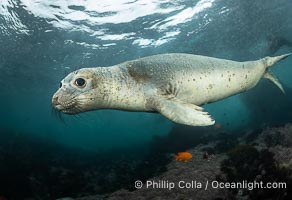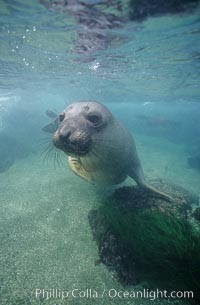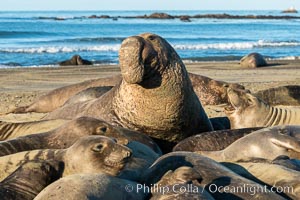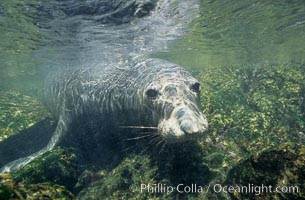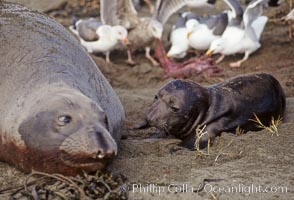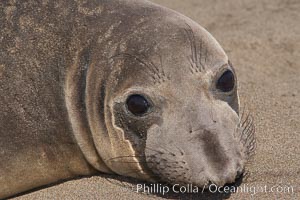
A northern elephant seal hovers underwater over a rocky bottom along the coastline of Guadalupe Island.
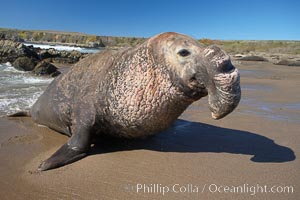
Bull elephant seal exits the water to retake his position on the beach. He shows considerable scarring on his chest and proboscis from many winters fighting other males for territory and rights to a harem of females. Sandy beach rookery, winter, Central California.
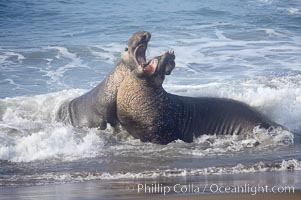
Male elephant seals (bulls) rear up on their foreflippers and fight in the surf for access for mating females that are in estrous. Such fighting among elephant seals can take place on the beach or in the water. They bite and tear at each other on the neck and shoulders, drawing blood and creating scars on the tough hides.

Bull elephant seal, adult male, bellowing. Its huge proboscis is characteristic of male elephant seals. Scarring from combat with other males.

Male elephant seals (bulls) rear up on their foreflippers and fight for territory and harems of females. Bull elephant seals will haul out and fight from December through March, nearly fasting the entire time as they maintain their territory and harem. They bite and tear at each other on the neck and shoulders, drawing blood and creating scars on the tough hides. Sandy beach rookery, winter, Central California.
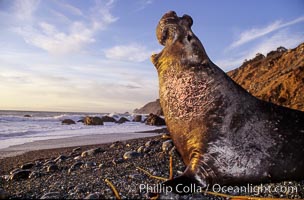
Northern elephant seal, sunset. Scars on neck and chest are from territorial battles with other adult males. Big Sur.
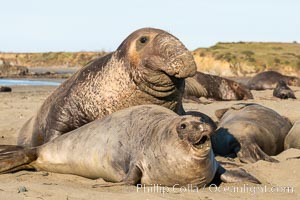
A bull elephant seal forceably mates (copulates) with a much smaller female, often biting her into submission and using his weight to keep her from fleeing. Males may up to 5000 lbs, triple the size of females. Sandy beach rookery, winter, Central California.
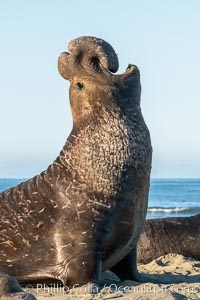
Bull elephant seal, adult male, bellowing. Its huge proboscis is characteristic of male elephant seals. Scarring from combat with other males.
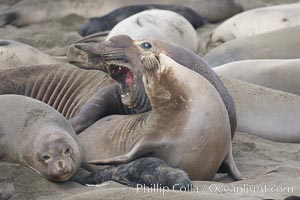
A bull elephant seal forceably mates (copulates) with a much smaller female, often biting her into submission and using his weight to keep her from fleeing. Males may up to 5000 lbs, triple the size of females. Sandy beach rookery, winter, Central California.
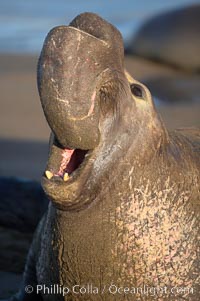
Bull elephant seal, adult male, bellowing. Its huge proboscis is characteristic of male elephant seals. Scarring from combat with other males. Central California.
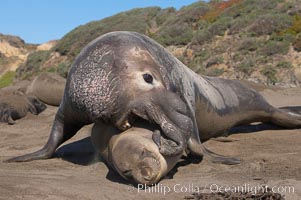
A bull elephant seal forceably mates (copulates) with a much smaller female, often biting her into submission and using his weight to keep her from fleeing. Males may up to 5000 lbs, triple the size of females. Sandy beach rookery, winter, Central California.
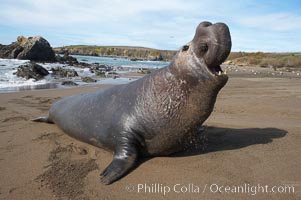
Male elephant seal rears up on its foreflippers and bellows to intimidate other males and to survey its beach territory. Winter, Central California.
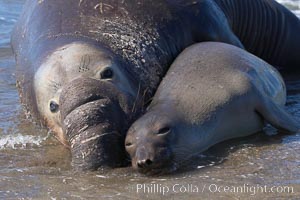
Elephant seals in the surf, showing extreme dimorphism, males (5000 lb) are triple the size of females (1700 lb). Central California.
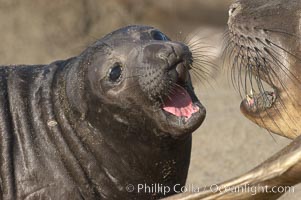
Elephant seal mother and pup vocalize to one another constantly, likely to reassure the pup and confirm the maternal identity on a crowded beach. Central California.

Male elephant seal rears up on its foreflippers and bellows to intimidate other males and to survey its beach territory. Winter, Central California.
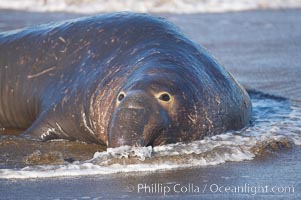
An adult male elephant seal rests on a wet beach. He displays the enormous proboscis characteristic of male elephant seals as well as considerable scarring on his neck from fighting with other males for territory. Central California.
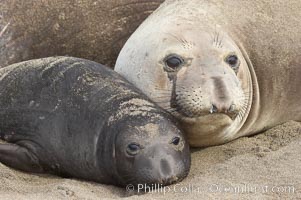
Mother elephant seal and her pup. The pup will nurse for 27 days, when the mother stops lactating and returns to the sea. The pup will stay on the beach 12 more weeks until it becomes hungry and begins to forage for food.
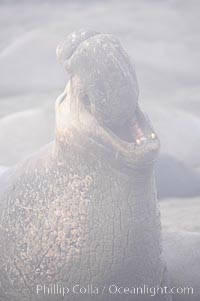
Partially obscured by coastal morning fog, this male elephant seal rears up on its foreflippers and bellows to intimidate other males and to survey its beach territory. Winter, Central California.
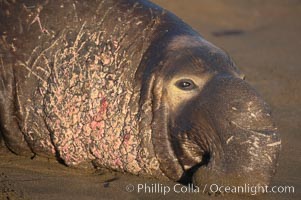
Bull elephant seal lies on the sand. This old male shows the huge proboscis characteristic of this species, as well as considerable scarring on his chest and proboscis from many winters fighting other males for territory and rights to a harem of females. Sandy beach rookery, winter, Central California.
